Susannah McCorkle

- Meta styles:
- Cabaret, Hard Bop, Traditional Pop, Vocal Jazz
- Style:
- Standards
Susannah McCorkle (4 January 1946 ? 19 May 2001) was an American jazz singer much admired for her direct, unadorned singing style and quiet intensity. McCorkle was born in Berkeley, California. She studied modern languages at the University of California, Berkeley. McCorkle began singing professionally after hearing recordings of Billie Holiday in Paris in the late 1960s. She nearly became an interpreter at the European Commission in Brussels, but moved instead to London in 1972 to pursue a career in singing.
McCorkle was born in Berkeley, California. She studied modern languages at the University of California, Berkeley. McCorkle began singing professionally after hearing recordings of Billie Holiday in Paris in the late 1960s. She nearly became an interpreter at the European Commission in Brussels, but moved instead to London in 1972 to pursue a career in singing. While in the UK, she made two albums which, although well received, enjoyed only limited circulation.
In the late 1970s, McCorkle returned to the United States and settled in New York City, where a five-month engagement at the Cookery in Greenwich Village brought her to wider public attention and elicited rave reviews from critics.
During the 1980s, McCorkle continued to record; her maturing style and the darkening timbre of her voice greatly enhanced her performances. In the early 1990s, two of the albums McCorkle made for Concord Records, No More Blues and S?bia, were enormously successful and made her name known to the wider world. She was recorded by the Smithsonian Institution which at the time made her the youngest singer ever to have been included in its popular music series. McCorkle played Lincoln Center's Avery Fisher and Alice Tully Halls five times and Carnegie Hall three times, and was featured soloist with Skitch Henderson and the 80-piece New York Pops in a concert of Brazilian music.
Thanks to her linguistic skills, McCorkle translated lyrics of Brazilian, French, and Italian songs, notably those for her Brazilian album Sabia. McCorkle also had several short stories published and, in 1991, began work on her first novel. She published fiction in Mademoiselle, Cosmopolitan Magazine, and non-fiction in the New York Times Magazine and in American Heritage, including lengthy articles on Ethel Waters, Bessie Smith, Irving Berlin and Mae West.
McCorkle suffered for many years from depression and cancer, and took her own life at age 55 by leaping off the balcony of her highrise Manhattan apartment. She was alone in her home at the time. The police immediately entered her home after identifying her body and found no foul play. Suicide was ruled the cause of death.
- Sort by
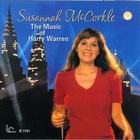
The Music Of Harry Warren
- Year:
- 2008
- Tracks:
- 16
- Bitrate:
- 320 kbps
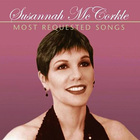
Most Requested Songs
- Year:
- 2001
- Tracks:
- 14
- Bitrate:
- 320 kbps
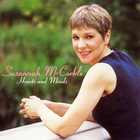
Hearts And Minds
- Year:
- 2000
- Tracks:
- 15
- Bitrate:
- 320 kbps
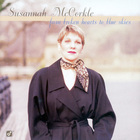
From Broken Hearts To Blue Skies
- Year:
- 1999
- Tracks:
- 14
- Bitrate:
- 320 kbps
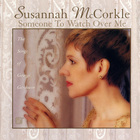
Someone To Watch Over Me - The Songs Of George Gershwin
- Year:
- 1997
- Tracks:
- 15
- Bitrate:
- 320 kbps
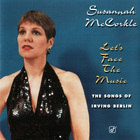
Let's Face The Music
- Year:
- 1996
- Tracks:
- 14
- Bitrate:
- 320 kbps
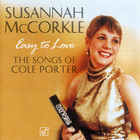
Easy To Love - The Songs Of Cole Porter
- Year:
- 1995
- Tracks:
- 14
- Bitrate:
- 320 kbps
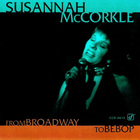
From Broadway To Bebop
- Year:
- 1994
- Tracks:
- 12
- Bitrate:
- 320 kbps
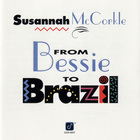
From Bessie To Brazil
- Year:
- 1993
- Tracks:
- 14
- Bitrate:
- 320 kbps
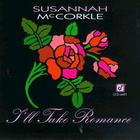
I'll Take Romance
- Year:
- 1991
- Tracks:
- 14
- Bitrate:
- 172 kbps
 Betty Carter
Betty Carter  Diane Schuur
Diane Schuur  Ella Fitzgerald
Ella Fitzgerald  Cleo Laine
Cleo Laine  Diane Witherspoon
Diane Witherspoon  Rosemary Clooney
Rosemary Clooney  Sheila Jordan
Sheila Jordan  Vanessa Rubin
Vanessa Rubin  Annie Ross
Annie Ross  Madeleine Peyroux
Madeleine Peyroux  Monica Mancini
Monica Mancini  Nnenna Freelon
Nnenna Freelon  Ann Hampton Callaway
Ann Hampton Callaway  Jane Monheit
Jane Monheit